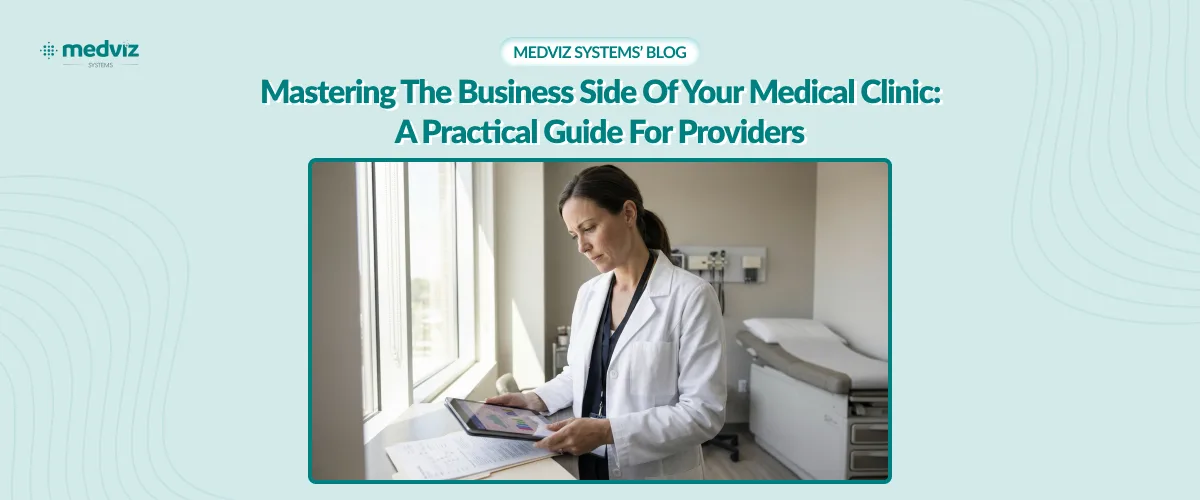A Growing Divide in Medicare Funding
As Medicare Advantage (MA) continues to grow at a historic pace, physician groups are raising alarms. While insurers participating in MA are set to receive a 4.33% payment increase in 2026, physicians operating under traditional Medicare face ongoing reimbursement cuts, creating a sharp and growing divide in how federal healthcare dollars are allocated.
The implications of this imbalance go beyond dollars and cents. For doctors, particularly those in smaller or independent practices, these shifts may lead to contract renegotiations, increased administrative burdens, and revenue uncertainty. For patients, it could mean limited access to trusted physicians as providers reconsider their participation in MA networks.
What Has Changed in Medicare Advantage?
In March 2025, the Centers for Medicare & Medicaid Services (CMS) announced an average 4.33% payment increase for Medicare Advantage plans, translating into over $21 billion in additional funding for private insurers in 2026. The aim? To adjust for rising risk scores and higher plan participation.
Meanwhile, physicians under the Medicare Physician Fee Schedule (PFS) will face a 2.8% cut, continuing a pattern of inflation-adjusted reductions that has plagued doctors for over a decade. According to the American Medical Association (AMA), Medicare physician pay has dropped nearly 30% in real terms since 2001.
“We are reaching a breaking point where physician sustainability is threatened,” said Dr. Jesse Ehrenfeld, president of the AMA. “We cannot keep rewarding insurers while ignoring the front-line providers of care.”
The Role of Risk Adjustment: How Insurers Win
Medicare Advantage plans are paid based on the risk scores of enrolled beneficiaries—a system known as risk adjustment. The more medically complex a patient appears on paper, the more money the plan receives from CMS.
Insurers often pressure physicians and provider groups to code patients with greater specificity to capture higher risk scores. While this may reflect appropriate documentation in some cases, audits by CMS have uncovered widespread “upcoding” abuses, where patient conditions are overstated or unsupported.
- A 2023 audit by the Office of Inspector General revealed that some MA plans had error rates above 70% for submitted diagnosis codes.
- These coding errors led to billions in overpayments—often not shared with physicians doing the documentation.
Despite these findings, many MA plans continue to reap financial rewards, while physicians shoulder the data-entry burden without proportional increases in reimbursement.
Provider Risk Models: More Responsibility, Uncertain Rewards
Many physicians participating in MA plans do so under risk-bearing contracts—especially in Accountable Care Organizations (ACOs) or with Direct Contracting Entities (DCEs). While some of these arrangements promise shared savings and bonus payments, they come with steep expectations:
- Detailed care coordination
- Real-time quality tracking
- Documentation audits
- Patient satisfaction benchmarks
Unfortunately, many practices don’t have the resources to meet these demands. According to a 2024 JAMA study, less than 40% of primary care practices felt “very prepared” to operate in a risk-sharing Medicare Advantage model.
Real-World Case: When MA Payments Get Withheld
In 2024, a dispute between Capital Cardiology Associates and CDPHP, a regional Medicare Advantage plan, made headlines. The plan withheld nearly $1.9 million in bonus payments due to “performance discrepancies.”
The issue? Capital Cardiology claimed it had met its benchmarks, but the metrics used to calculate the bonus were changed mid-year without sufficient notice. The case exposed how opaque payment models and shifting goalposts can leave physicians vulnerable.
For smaller practices, such financial disruptions can be existential.
Policy at a Crossroads: Reforms on the Horizon
With bipartisan criticism mounting, Congress is beginning to act. Several key proposals could dramatically reshape the Medicare Advantage landscape:
- HR 3467, sponsored by Rep. David Schweikert (R-AZ), would automatically enroll some seniors into MA plans unless they opt out, while pushing more providers into capitated payment models.
- Project 2025, a conservative policy blueprint, outlines a future where most physicians are paid through risk-based contracts, with performance-based caps replacing fee-for-service.
While reform advocates argue this will curb fraud and improve efficiency, provider organizations are wary. The Medical Group Management Association (MGMA) warns that shifting to capitation without safeguards could “destabilize frontline practices and reduce access in rural and underserved communities.”
How Physician Practices Should Respond
With change on the horizon, physicians can’t afford to be passive. Here are strategies to protect your revenue and patient care capacity:
✅ Strengthen Coding & Documentation Systems
Invest in staff training and technology that ensures accurate, compliant risk coding without over-reliance on templates or assumptions.
✅ Negotiate MA Contracts Carefully
Review withhold clauses, performance metrics, and audit provisions. Seek legal and financial advice before signing value-based arrangements.
✅ Build Cash Reserves
Given the volatility of bonus-based payments, practices should maintain buffer reserves or seek third-party assistance with revenue cycle management.
✅ Monitor Policy Developments
Stay informed through AMA, MGMA, and local medical societies. Public comment periods for CMS proposals are your chance to speak up.
Conclusion: A Critical Inflection Point for Medicare Providers
Medicare Advantage is not going away — but its dominance in the Medicare space is now raising urgent questions about equity, oversight, and provider sustainability. As insurers reap billions in taxpayer dollars, physicians increasingly bear the cost of complexity, with shrinking reimbursement and growing pressure to perform.
If lawmakers want to preserve access to quality care, especially in underserved areas, they must ensure reforms don’t just enrich plans — but empower providers.
Don’t Let Medicare Advantage Disrupt Your Bottom Line
As Medicare Advantage evolves, so should your billing strategy. Shrinking reimbursements, risk adjustment audits, and unpredictable payment models shouldn’t be what defines your practice’s future.
At Medviz Systems, we turn complex revenue cycle challenges into clear, actionable solutions — built for practices like yours navigating today’s Medicare maze.
📞 Talk to a real RCM strategist today at +1 (727) 214-2749
📧 Or reach out directly at success@medviz.ai
We don’t just optimize your billing — we defend your revenue, decode risk scores, and help you stay two steps ahead of every Medicare Advantage shift.
Partner with Medviz — and take back control of your practice’s profitability.



Leave a Reply